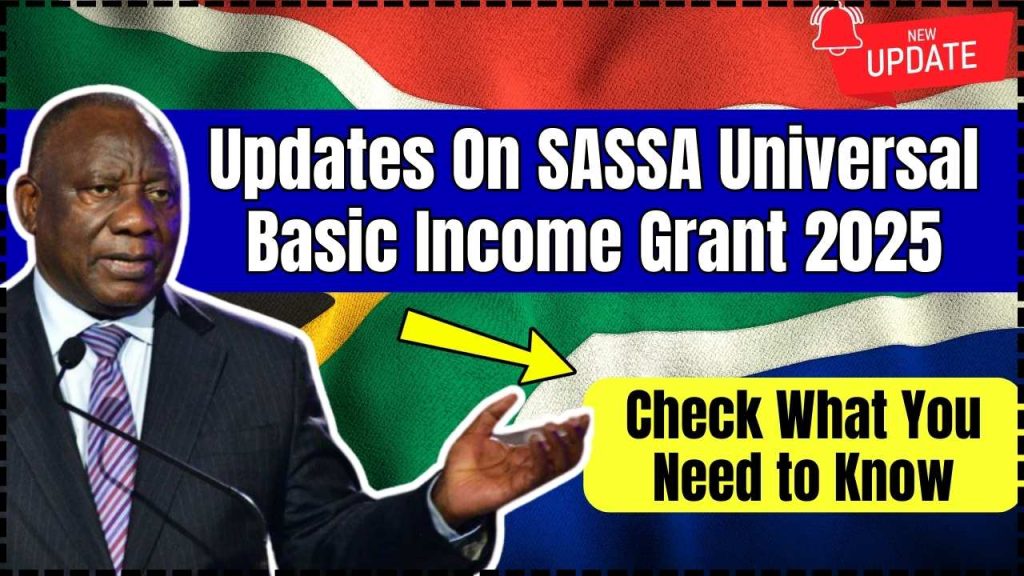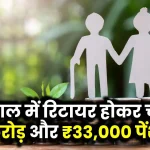The SASSA Universal Basic Income Grant (UBIG) 2025 is a major topic of discussion in South Africa. With the Social Relief of Distress (SRD) grant set to expire in March 2025, the government is actively working on introducing a more permanent solution to combat poverty and economic instability. The UBIG aims to provide financial relief to millions of unemployed and low-income citizens, ensuring they can afford basic needs such as food, housing, and healthcare.

This initiative could transform the social welfare landscape in South Africa, but many questions remain. How will the Universal Basic Income Grant (UBIG) work? Who will qualify, and how will it be funded? Let’s break it all down in a simple yet informative way.
SASSA Universal Basic Income Grant 2025
| Feature | Details |
|---|---|
| Grant Name | Universal Basic Income Grant (UBIG) |
| Current Status | Under discussion by government |
| Possible Replacement For | SRD R370 Grant (expires March 2025) |
| Estimated Monthly Payment | R1,500 (proposed by Social Policy Initiative) |
| Eligibility | Likely to be all unemployed South Africans, details yet to be finalized |
| Funding Source | Government taxation and possible external funding |
| Implementation Challenges | Financial sustainability, administrative efficiency, fraud prevention |
| Official Website | SASSA Official Site |
The SASSA Universal Basic Income Grant 2025 is a potential game-changer for millions of South Africans. While challenges remain, this initiative could help fight poverty, boost economic activity, and create a more stable future. With the right policies and funding mechanisms, UBIG could ensure a more equitable society where no one is left behind. Keep an eye on official announcements to stay updated on this developing story.
What is the Universal Basic Income Grant (UBIG)?
The Universal Basic Income Grant (UBIG) is a proposed monthly financial support system aimed at helping unemployed and low-income South Africans. Unlike the SRD grant, which is temporary, UBIG is expected to be a permanent solution to help citizens meet their basic needs and uplift the economy.
Why is the UBIG Needed?
South Africa faces significant economic challenges, including:
- High Unemployment: Over 32.6% of South Africans are unemployed as of 2024.
- Extreme Poverty: Many people struggle to afford food, housing, and healthcare.
- Rising Living Costs: Inflation has made basic goods unaffordable for many citizens.
- Economic Instability: Many households rely on informal or inconsistent income sources, making financial planning difficult.
A Universal Basic Income Grant could provide financial stability, ensuring people can survive while seeking work, studying, or starting small businesses. Studies have shown that basic income grants can stimulate local economies, as beneficiaries spend their funds on essential goods and services, boosting demand.
How Will the UBIG Work?
While the exact structure of UBIG is still being discussed, here’s what experts predict:
1. Monthly Payout Amount
The Social Policy Initiative (SPI) recommends a minimum of R1,500 per month. This is significantly higher than the SRD grant (R370) and aligns with living costs in South Africa. Some organizations propose an even higher amount, closer to R2,000, to meet the rising cost of living.
2. Who Will Qualify for SASSA Grant 2025?
Likely eligibility criteria may include:
- South African citizens aged 18-59.
- Unemployed individuals not receiving other grants (excluding child grants).
- Low-income earners below a specified threshold.
- Self-employed or informal workers with limited income.
The government is also exploring whether to provide a universal grant (for all adults) or a targeted grant for those in financial distress.
3. How to Apply for SASSA Grant 2025?
Once implemented, the application process will likely be online and in-person, similar to current SASSA grant applications. Applicants may need to:
- Provide ID and proof of income.
- Submit banking details or choose a payment method.
- Undergo verification to prevent fraud.
- Renew applications periodically to confirm continued eligibility.
Challenges Facing the UBIG Implementation
1. Financial Sustainability
A grant covering millions of South Africans will require billions in government funding. The government is exploring tax adjustments, international aid, and economic growth strategies to finance the program sustainably. Some experts suggest increasing corporate taxes, VAT, or high-income individual taxes to fund UBIG.
2. Administrative Efficiency
SASSA has faced fraud, corruption, and payment delays with previous grants. To implement UBIG successfully, the government must improve:
- Digital verification systems to prevent fraud.
- Banking infrastructure to ensure fast and reliable payments.
- Public communication to educate beneficiaries on how to apply and manage funds.
3. Economic Impact
Some critics worry that a large-scale handout might discourage people from seeking jobs. However, studies from other countries show that UBIG often boosts entrepreneurship and employment, as financial security allows individuals to pursue better opportunities.
Additionally, by putting money into the hands of low-income citizens, UBIG could stimulate local businesses and markets, ultimately benefiting the broader economy.
The $3M Bicentennial Quarter and 4 Coins Over $300K – How to Spot These Rare Treasures!
Are You Holding a $70 Million Fortune? These Rare Coins Could Be Hiding in Your Collection!
This Quarter Is Worth $8M! Plus 2 More Coins Valued Over $45 Million
FAQs About SASSA Universal Basic Income Grant 2025
1. When will the UBIG be implemented?
The government is still in discussions, but if approved, it could launch by late 2025 or early 2026.
2. Will UBIG replace other grants?
The plan is to replace SRD grants while keeping other social grants (like child and disability grants) unchanged.
3. How can I check my eligibility?
Once UBIG is officially introduced, you can check eligibility on the SASSA website or visit a local office.
4. Will the grant be permanent?
Yes, the idea behind UBIG is to create a long-term safety net for unemployed South Africans.
5. What if I start earning an income?
The government may introduce a gradual phase-out for those who begin earning income, meaning beneficiaries won’t lose the grant immediately but will receive a reduced amount as their income increases.











